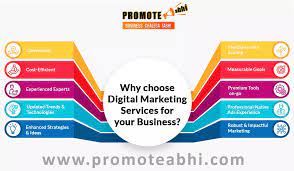The Power of a Successful Digital Marketing Campaign
In today’s digital age, the success of a business often hinges on its ability to reach and engage with its target audience online. This is where a well-planned and executed digital marketing campaign plays a crucial role.
A digital marketing campaign is a strategic approach that utilises various online channels such as social media, email, search engines, and websites to promote products or services, build brand awareness, and drive conversions. Unlike traditional marketing methods, digital marketing offers businesses the opportunity to reach a global audience in real time and measure the effectiveness of their campaigns with precision.
Key Components of a Digital Marketing Campaign
Effective digital marketing campaigns typically involve a mix of tactics tailored to achieve specific objectives. These may include:
- Search Engine Optimisation (SEO): Optimising website content to improve search engine rankings and increase organic traffic.
- Pay-Per-Click (PPC) Advertising: Running targeted ads on search engines or social media platforms to drive immediate traffic to a website.
- Social Media Marketing: Engaging with audiences on platforms like Facebook, Instagram, Twitter, and LinkedIn to build brand loyalty and generate leads.
- Email Marketing: Sending personalised emails to subscribers to nurture relationships and promote products or services.
- Content Marketing: Creating valuable and relevant content such as blog posts, videos, infographics, and ebooks to attract and retain customers.
The Benefits of a Successful Digital Marketing Campaign
A well-executed digital marketing campaign can yield numerous benefits for businesses, including:
- Increased Brand Visibility: By leveraging multiple online channels, businesses can enhance their visibility among their target audience.
- Better Targeting: Digital marketing allows for precise audience targeting based on demographics, interests, behaviour, and more.
- Data-Driven Insights: Through analytics tools, businesses can track the performance of their campaigns in real time and make data-driven decisions for continuous improvement.
- Cost-Effectiveness: Compared to traditional advertising methods, digital marketing offers cost-effective solutions with higher ROI potential.
In conclusion, a successful digital marketing campaign is essential for businesses looking to stay competitive in today’s fast-paced digital landscape. By harnessing the power of online channels strategically and creatively, businesses can connect with their target audience effectively, drive engagement and conversions, and ultimately achieve their business goals.
Essential FAQs on Digital Marketing Campaigns: Understanding, Implementing, and Optimising Success
- What is a digital marketing campaign?
- Why is a digital marketing campaign important for businesses?
- What are the key components of a digital marketing campaign?
- How can businesses measure the success of their digital marketing campaigns?
- What role does social media play in a digital marketing campaign?
- How can businesses effectively target their audience in a digital marketing campaign?
- What are some common challenges faced by businesses when implementing a digital marketing campaign?
- How can businesses stay updated with the latest trends and best practices in digital marketing campaigns?
What is a digital marketing campaign?
A digital marketing campaign is a strategic and coordinated effort that leverages various online channels, such as social media, search engines, email, and websites, to promote products or services, enhance brand visibility, and drive desired actions from a target audience. It involves the creation and execution of tailored marketing tactics aimed at achieving specific business objectives, such as increasing website traffic, generating leads, or boosting sales. By utilising the power of digital technologies and data-driven insights, a digital marketing campaign enables businesses to engage with their audience in real time, measure performance accurately, and optimise their marketing efforts for maximum impact and return on investment.
Why is a digital marketing campaign important for businesses?
A digital marketing campaign is crucial for businesses in today’s digital landscape due to its ability to reach and engage with a vast online audience. By leveraging various online channels such as social media, search engines, and email, businesses can enhance their brand visibility, attract targeted traffic, and drive conversions. Digital marketing offers a cost-effective way to connect with customers in real time, gather valuable insights through data analytics, and adapt strategies for optimal results. In an increasingly competitive market, a well-executed digital marketing campaign is essential for businesses to stay relevant, build brand loyalty, and achieve sustainable growth.
What are the key components of a digital marketing campaign?
When it comes to understanding the key components of a digital marketing campaign, it is essential to recognise the diverse tactics that collectively contribute to its success. These components typically encompass various strategies such as Search Engine Optimisation (SEO) to enhance online visibility, Pay-Per-Click (PPC) Advertising for targeted promotion, Social Media Marketing for audience engagement, Email Marketing for personalised communication, and Content Marketing to provide valuable and relevant content. Each of these elements plays a crucial role in crafting a comprehensive digital marketing strategy that aims to reach and resonate with the intended audience effectively.
How can businesses measure the success of their digital marketing campaigns?
Businesses can measure the success of their digital marketing campaigns through a variety of key performance indicators (KPIs) that align with their specific goals and objectives. Metrics such as website traffic, conversion rates, click-through rates, return on investment (ROI), social media engagement, email open rates, and customer acquisition cost provide valuable insights into the effectiveness of a campaign. By analysing these metrics using analytics tools and tracking software, businesses can gain a comprehensive understanding of their campaign performance, identify areas for improvement, and make data-driven decisions to optimise future strategies.
What role does social media play in a digital marketing campaign?
Social media plays a pivotal role in a digital marketing campaign by providing businesses with a powerful platform to engage with their target audience, build brand awareness, and drive conversions. With billions of active users across various social media platforms, businesses can reach a wide and diverse audience in real time. Social media enables businesses to create targeted ads, share valuable content, interact with customers, and gather valuable insights through analytics. By leveraging the interactive nature of social media, businesses can foster relationships with their audience, increase brand loyalty, and ultimately boost their online presence and revenue.
How can businesses effectively target their audience in a digital marketing campaign?
In a digital marketing campaign, businesses can effectively target their audience by first understanding their target demographic and defining specific buyer personas. By conducting thorough market research and analysing data, businesses can identify the online channels where their audience is most active and tailor their messaging accordingly. Utilising tools such as social media analytics, keyword research, and audience segmentation allows businesses to create personalised content that resonates with their target audience. Implementing targeted advertising strategies, such as pay-per-click (PPC) campaigns and social media ads, further enhances the reach and impact of the campaign by reaching potential customers based on their interests, behaviour, and demographics. By continuously monitoring and refining their targeting efforts based on real-time data insights, businesses can optimise their digital marketing campaigns for maximum effectiveness in engaging with their desired audience.
What are some common challenges faced by businesses when implementing a digital marketing campaign?
When businesses embark on implementing a digital marketing campaign, they often encounter several common challenges. One prevalent issue is the ever-evolving nature of digital platforms and algorithms, which can make it challenging to stay updated with the latest trends and best practices. Another common challenge is the competition for audience attention in a crowded online space, requiring businesses to differentiate themselves creatively to stand out. Additionally, measuring the effectiveness of digital marketing efforts and attributing ROI accurately can be a hurdle for many businesses, highlighting the importance of robust analytics and tracking mechanisms. Lastly, maintaining consistent engagement with audiences across various online channels while ensuring brand messaging remains cohesive presents a notable challenge for businesses striving for digital marketing success.
How can businesses stay updated with the latest trends and best practices in digital marketing campaigns?
To stay updated with the latest trends and best practices in digital marketing campaigns, businesses can adopt several strategies. Firstly, subscribing to reputable industry publications, attending webinars, and participating in digital marketing conferences can provide valuable insights into emerging trends and innovative strategies. Additionally, following influential thought leaders and experts in the field on social media platforms like LinkedIn and Twitter can offer real-time updates and expert opinions. Engaging with online communities and forums dedicated to digital marketing can also facilitate knowledge sharing and networking opportunities. Regularly conducting competitor analysis and staying abreast of changes in search engine algorithms and social media platforms are essential for adapting strategies to align with current best practices. Embracing a culture of continuous learning, experimentation, and adaptation is key to remaining competitive in the dynamic landscape of digital marketing.




